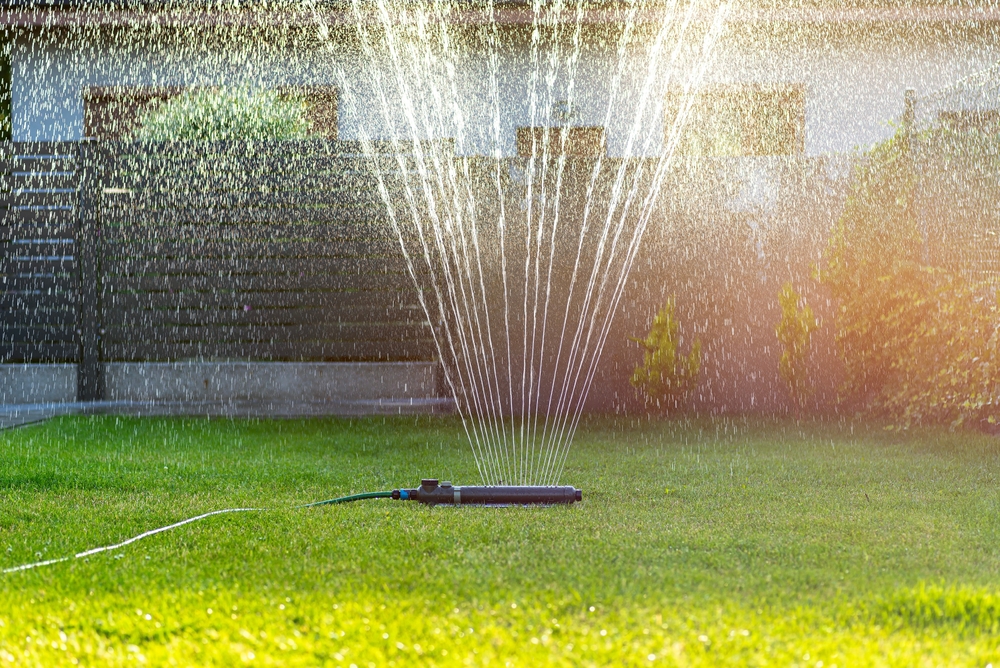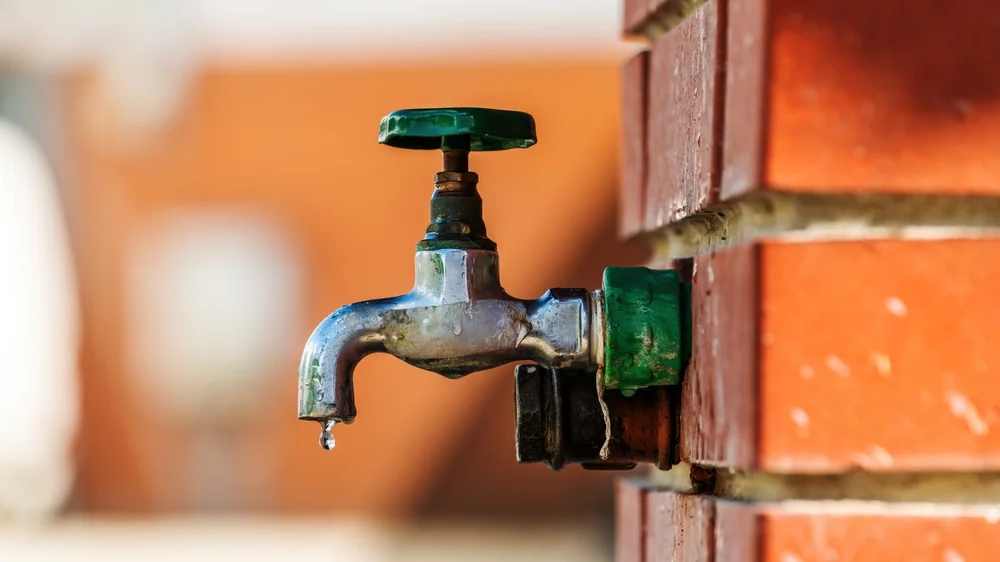Water Efficiency & Sustainable Plumbing Solutions for Homes
Managing water resources has become one of the most important responsibilities for homeowners today, especially in areas where climate conditions can vary greatly throughout the year. Our team at Plumbing Inspectors understands that achieving water efficiency isn’t just about saving money but about preserving a vital resource for future generations. Every drop counts and every home has the potential to contribute to a more sustainable community through better plumbing practices. By combining modern technology with mindful habits, households can significantly reduce water waste and energy consumption while maintaining daily comfort.
Sustainability in plumbing systems has evolved beyond traditional methods and now includes innovative upgrades that help homeowners cut costs and protect the environment. From rainwater harvesting to detecting hidden leaks, every improvement makes a measurable difference. As homes become older or experience wear over time, proper inspections and eco-friendly upgrades ensure that plumbing systems perform at their best. The right adjustments can improve water quality and create long-term value for the property and the environment.

The Importance of Water Efficiency in Plumbing Systems
Efficient water use is critical in maintaining a sustainable home environment. As water demand continues to grow, homeowners must find ways to minimise waste and maximise system performance. Water-efficient plumbing systems not only help the environment but also protect homeowners from rising utility costs. By making smart upgrades and adopting responsible practices, it becomes easier to balance cost and conservation.
Brisbane Water Restrictions and What Homeowners Should Know
Brisbane often experiences changes in water availability due to seasonal variations and population growth, making water restrictions an essential part of local living. Understanding these restrictions helps residents plan how to use water responsibly without facing penalties. Staying updated with local regulations ensures that plumbing systems are aligned with current sustainability goals.
- Homeowners must follow guidelines on outdoor water use, such as using hoses fitted with trigger nozzles and limiting irrigation during restricted hours to reduce unnecessary water consumption.
- Installing devices like smart metres can help monitor water usage in real time, allowing homeowners to identify leaks or excessive use before it becomes a problem.
- Ensuring fixtures comply with approved efficiency standards supports community efforts in conserving water and helps avoid fines for non-compliance.
Impact of Water-Saving Plumbing on Household Bills
Improving water efficiency directly benefits household finances by lowering utility expenses and reducing maintenance costs. Water-saving fixtures and appliances are designed to deliver the same comfort and convenience while using less water overall. The initial investment in upgrades often pays for itself through consistent long-term savings.
- Installing low-flow taps and dual-flush toilets can reduce overall water consumption by up to 40%, significantly decreasing monthly water bills.
- Fixing leaks and replacing old fixtures prevents unnecessary water loss, which can otherwise add hundreds of dollars annually to household expenses.
- Energy-efficient water systems also lower electricity costs by reducing the amount of hot water used during showers or dishwashing and laundry.
How Water Efficiency Supports Local Infrastructure
Reducing water usage at home benefits not only individual households but also the wider community. When homeowners manage their water responsibly, it eases pressure on municipal water systems and supports long-term supply reliability. This proactive approach strengthens the sustainability of local infrastructure.
- Lower residential water consumption helps reduce demand on treatment facilities, improving their efficiency and extending their lifespan.
- Sustainable water management minimises the risk of water shortages during droughts, ensuring consistent availability for all households.
- Reduced strain on the public system helps maintain stable water rates for residents, promoting fair and manageable living costs across communities.
Sustainable Plumbing Upgrades for Brisbane Homes
Sustainable plumbing solutions are reshaping how homes use and conserve water. From recycling systems to modern fixtures, these upgrades make homes more eco-friendly while improving functionality. Adopting such changes doesn’t only benefit the environment but also adds value to the property. By incorporating these technologies, homeowners can enjoy better performance and lower maintenance over time.
Rainwater Harvesting Systems: Installation and Benefits
Collecting rainwater for household use has become a practical and efficient way to reduce dependence on the mains supply. Modern systems can store and filter rainwater for garden use or toilet flushing. This approach reduces costs and provides an independent water source during dry spells.
- Installing tanks connected to roof gutters allows homeowners to store thousands of litres of rainwater for everyday use, easing reliance on municipal supplies.
- Filtration systems ensure the collected water remains clean and safe for use around the home, minimising the risk of contamination.
- Rainwater systems can be integrated with smart sensors that automatically switch between mains and stored water, ensuring consistent flow without manual adjustment.
Greywater Recycling: Opportunities and Local Regulations
Recycling greywater, such as water from showers and sinks, offers another sustainable way to reduce waste. These systems redirect water to be treated and reused for non-drinking purposes like irrigation or toilet flushing. Compliance with local laws ensures the system operates safely and effectively.
- Homeowners must install approved systems that meet council regulations to avoid contamination and maintain water quality standards.
- Regular maintenance and system checks will make sure that greywater remains hygienic and safe for reuse around the property.
- Reusing greywater significantly lowers household water consumption, helping reduce demand on public resources and overall water bills.
Smart Plumbing Technology for Sustainable Living
Smart plumbing devices have transformed how households monitor and control water usage. With sensors and digital metres controlling automated valves, homeowners can identify leaks or inefficiencies instantly. This level of control leads to faster responses and reduced waste.
- Smart leak detectors send alerts when abnormal water flow is detected, allowing quick action before major damage occurs.
- Automated irrigation systems adjust watering schedules based on weather conditions, ensuring efficient use without overwatering.
- Digital water metres provide detailed data on daily consumption, helping households pinpoint habits that lead to unnecessary use.

How Plumbing Inspections Can Identify Water Waste and Inefficiencies
Regular inspections are a vital part of maintaining water efficiency and preventing costly repairs. They uncover issues that often go unnoticed, such as hidden leaks or ageing pipes. Professional assessments ensure that every part of the plumbing network functions efficiently. Through scheduled checks, homeowners can extend the lifespan of their system and reduce their overall environmental footprint.
Detecting Hidden Leaks and Outdated Fixtures
Hidden leaks can waste significant amounts of water without visible signs. Over time, they can also cause structural damage to walls and floors. Identifying and fixing these problems early can save both money and resources.
- A plumber in Brisbane will use advanced tools like thermal imaging or acoustic sensors to locate leaks behind walls or under floors.
- Replacing outdated taps or showerheads and even valves ensures consistent performance and prevents unnecessary water loss.
- Homeowners benefit from reduced repair costs and improved efficiency once these problems are resolved promptly.
Inspecting Underground and Outdoor Systems
Outdoor plumbing, including irrigation lines and drainage systems, often suffers from unnoticed wear and tear. Inspections in these areas can identify blockages or inefficient designs that waste water. Maintaining these systems keeps outdoor areas healthy and reduces water waste.
- Underground camera inspections help locate root intrusion or cracks that may cause leaks or water pooling.
- Proper grading and design of outdoor systems prevent runoff and ensure even water distribution across gardens.
- Timely repairs to outdoor pipes and sprinklers improve water efficiency while reducing landscape damage.
Assessing Water Pressure and System Balance
Uneven water pressure can be an early sign of hidden plumbing problems. Regular assessments help identify whether pressure imbalances stem from blockages or system inefficiencies. Correcting these issues improves comfort and prolongs system health.
- High water pressure can strain joints and seals, leading to leaks or burst pipes if left unchecked.
- Low pressure may indicate partial clogs or buildup within the pipes, reducing flow and efficiency.
- Pressure regulators and modern valves help maintain a consistent balance, ensuring system stability and reliability.
Choosing Eco-Friendly Plumbing Fixtures and Materials
Selecting the right fixtures and materials plays a key role in creating sustainable homes. Modern designs prioritise durability and environmental responsibility. Using eco-friendly components reduces the carbon footprint while improving water performance. This approach aligns comfort with conservation.
Low-Flow Fixtures and Aerated Taps
Low-flow fixtures are designed to reduce water consumption without sacrificing pressure. Aerated taps mix air into the water stream, providing an efficient yet satisfying flow. These upgrades are effective and easy to maintain.
- Replacing old taps with aerated models can save several litres of water per minute during regular use.
- Low-flow showerheads reduce water usage significantly while maintaining a comfortable shower experience.
- Many models include adjustable settings that allow users to choose between efficiency and higher pressure when needed.
Eco-Friendly Piping and Material Selection
The choice of piping material affects not only water flow but also environmental impact. Sustainable options like PEX and recycled materials offer long-lasting solutions with lower ecological footprints. Durable materials reduce waste and improve performance.
- PEX pipes resist corrosion and scale buildup, ensuring cleaner water and a longer service life.
- Recycled or sustainably sourced materials reduce manufacturing waste and energy consumption.
- Using insulation on pipes prevents heat loss, conserving energy when delivering hot water throughout the home.
Sustainable Water Heating Solutions
Water heating systems are among the largest consumers of household energy. Upgrading to energy-efficient models helps reduce both water and power waste. Modern options provide consistent performance with minimal impact on the environment.
- Tankless water heaters deliver hot water on demand, eliminating energy losses from storage tanks.
- Solar-assisted systems harness natural energy, reducing dependence on electricity or gas.
- Regular maintenance of water heaters improves efficiency and prolongs their operational life.
Steps to Make Older Brisbane Homes More Water-Efficient
Older homes often have plumbing systems that were not designed for modern efficiency standards. But with the right upgrades and maintenance, these properties can become just as sustainable as new builds. Updating old fixtures and improving insulation or checking for leaks are effective ways to enhance performance. Each improvement contributes to long-term cost savings and environmental benefits.
Retrofitting Outdated Fixtures
Retrofitting is an affordable alternative to full system replacement. It allows homeowners to enjoy modern efficiency without major renovations. Small adjustments can make a big difference in overall water use.
- Replacing single-flush toilets with dual-flush models can dramatically cut water consumption per use.
- Installing water-saving aerators on taps provides instant improvements in flow control and conservation.
- Upgrading showerheads ensures better performance and comfort with less water use.
Improving Insulation and Pipe Maintenance
Efficient plumbing is about fixtures and maintaining the network that delivers water. Insulated and well-maintained pipes conserve energy and protect against wear. Regular upkeep ensures consistent performance and prevents leaks.
- Insulating hot water lines reduces heat loss, improving efficiency and reducing energy costs.
- Flushing pipes periodically removes sediment buildup that can restrict flow and damage fixtures.
- Inspecting joints and valves regularly ensures that small leaks don’t become larger, costly issues.
Scheduling Regular Professional Inspections
Routine inspections by certified professionals ensure that every part of the plumbing system functions as it should. These checks can uncover issues before they worsen and verify that upgrades meet modern standards. Regular maintenance adds value and security for homeowners.
- Scheduled assessments detect minor leaks or inefficiencies early, preventing bigger problems later.
- Professionals can recommend new technologies or products to improve efficiency and compliance with regulations.
- Consistent inspections build a reliable maintenance history that benefits property value and future sale potential.
Maintaining water efficiency and sustainable plumbing solutions is an ongoing process that requires care and the right expertise. Plumbing Inspectors believes that a well-maintained system not only saves resources but also creates a healthier living environment. From smart upgrades to detailed inspections, homeowners can take practical steps towards long-term sustainability.
Investing in efficient plumbing ensures that homes remain cost-effective and environmentally responsible. Every improvement contributes to a cleaner, greener future for the community. With the right guidance and professional support, any home can achieve water efficiency that benefits both the household and the planet.



.webp)